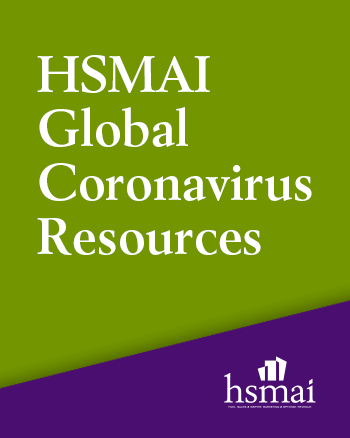By Dan Wacksman, CHDM, CRME, principal at Sassato LLC, and member of HSMAI’s Marketing Advisory Board
 As most of the country has been in lockdown mode for more than a month, many hoteliers are beginning to focus on what the future will look like once things start opening up again. HSMAI’s Marketing Advisory Board (MAB) met on a call April 16 during which members shared their predictions, fears, and hopes for the future. Here are a few highlights from that discussion:
As most of the country has been in lockdown mode for more than a month, many hoteliers are beginning to focus on what the future will look like once things start opening up again. HSMAI’s Marketing Advisory Board (MAB) met on a call April 16 during which members shared their predictions, fears, and hopes for the future. Here are a few highlights from that discussion:
1. CLEANING MEASURES
While none of the MAB members on the call is on the housekeeping side of the business, keeping hotels clean and safe for guests is important from a marketing perspective because it will be necessary to communicate to guests what precautions are being taken.
One MAB member said that this has been a hot topic on calls he has had with other hotels. “A lot of them have said, ‘We don’t want to talk about sales and marketing right now. We want to talk about how to clean our hotels better and retrain our staff on cleanliness,’” he said. “We have some new cleaning guidelines that we’ve sent out to everybody about our stance, and we have a resource center on our portal for our hotels to get information on cleanliness and local laws.”
2. SOCIAL DISTANCING
Social distancing will have to be enforced long after the peak of COVID-19 is over, potentially bringing permanent change in some ways. MAB members debated if it would be better to reduce the number of guests allowed to stay on property or continue to sell to capacity but make sure guests interact with each other less. Several members said they have already put guest limitations into place in order to make people feel safer when they come.
“I think it’s going to be interesting seeing how this impacts programming and activities on property,” one MAB member said “Do we have to come up with new ways for guests to enjoy the destination but limit the number of people that come and enjoy it? Are we going to have to offer more things to do in room versus onsite?”
Another popular initiative is contactless check-ins, which some MAB members on the call have already implemented. One participant said that the way it is done at his hotel is through an app, with guests uploading a copy of their government identification, a selfie to prove that it is really them, and a credit card. Several different apps were mentioned that allow guests to get into their rooms by using their phones, eliminating the need for keys or key cards.
Another way things could change? Say goodbye to notepads, pens, and binders of information in guest rooms. “The materials in the rooms like pens, notepads, magazines — all that stuff was pulled out, because it can carry germs,” an MAB member said. “The compendiums and all of that, those are pretty entrenched, and I wonder if they’ll just go away after all of this.”
3. OPENING PLANS
While some members on the call said they hope to open their shuttered hotels as early as June 1, others were less optimistic. “One of the biggest challenges is everyone coming to terms that June 1 may not be possible,” one MAB member said.
Although summer travel is still questionable, several MAB members said they are seeing some domestic bookings in June and July, with a spike in bookings in September and beyond. One MAB member said that his hotel is even ahead of pace for fall over last year. “That’s obviously a result of a lot of people moving into later in the year,” he said. “We’re taking a hit on rate, because our winter and spring rates, of course, are much less than our high-season summer rates, but we’re just trying to hold on to as many guests as we can.”
Even as many hotels are planning to ramp up and reopen, others are still grappling with the decision to close temporarily. While some hotels are fully closed, other are operating as bare-bones as possible, because staying open is actually more affordable than closing altogether. “It’s cheaper to have a couple of people on property than to hire security to make sure nothing happens,” one MAB member said, “so they’ve opened it because of that, and if they have one or two bookings or can serve first responders, they can do that.”
Another thing to keep in mind about fully closing is the legalities of reopening. “In certain markets, even if they temporarily close and they put it on Google that they’re temporarily closed, when they go to reopen they have to go through a bunch of permitting processes and do everything all over again,” one MAB member said. “So, some of them are choosing not to, because the hassle of that’s going to outweigh any potential cost savings right now.”
4. ADS
Because most people are not booking rooms right now, several MAB members who work for hotels and OTAs said they haven’t been spending much if anything on advertising, which has brought down the price for those who do want to invest in ads. “It is so cheap on Google that if you get the right ads out there, there’s very low risk in doing that at this point,” one MAB member said.
What are the right ads? Several MAB members on the call recommended pushing out promotions and advertising flexibility in canceling, as well as easing customers’ fears about safety issues. “We’ve had a lot of success with campaigns that are doing value-adds, like additional food credits,” one MAB member said. “We know there’s going to be a financial burden on people that may make them resistant to travel, in addition to the fear that exists because of safety, so we’re really trying to address those two burdens as much as we can in the advertising.”
However, one MAB member said she is concerned that this trend of affordable advertising will not continue. “My biggest fear is that marketing will be just as expensive as it was before,” she said. “And revenues will be significantly lower, so the percentage of the ROIs is going to be obliterated.”
For additional information, insights, and tools, visit HSMAI’s Global Coronavirus Resources page.
